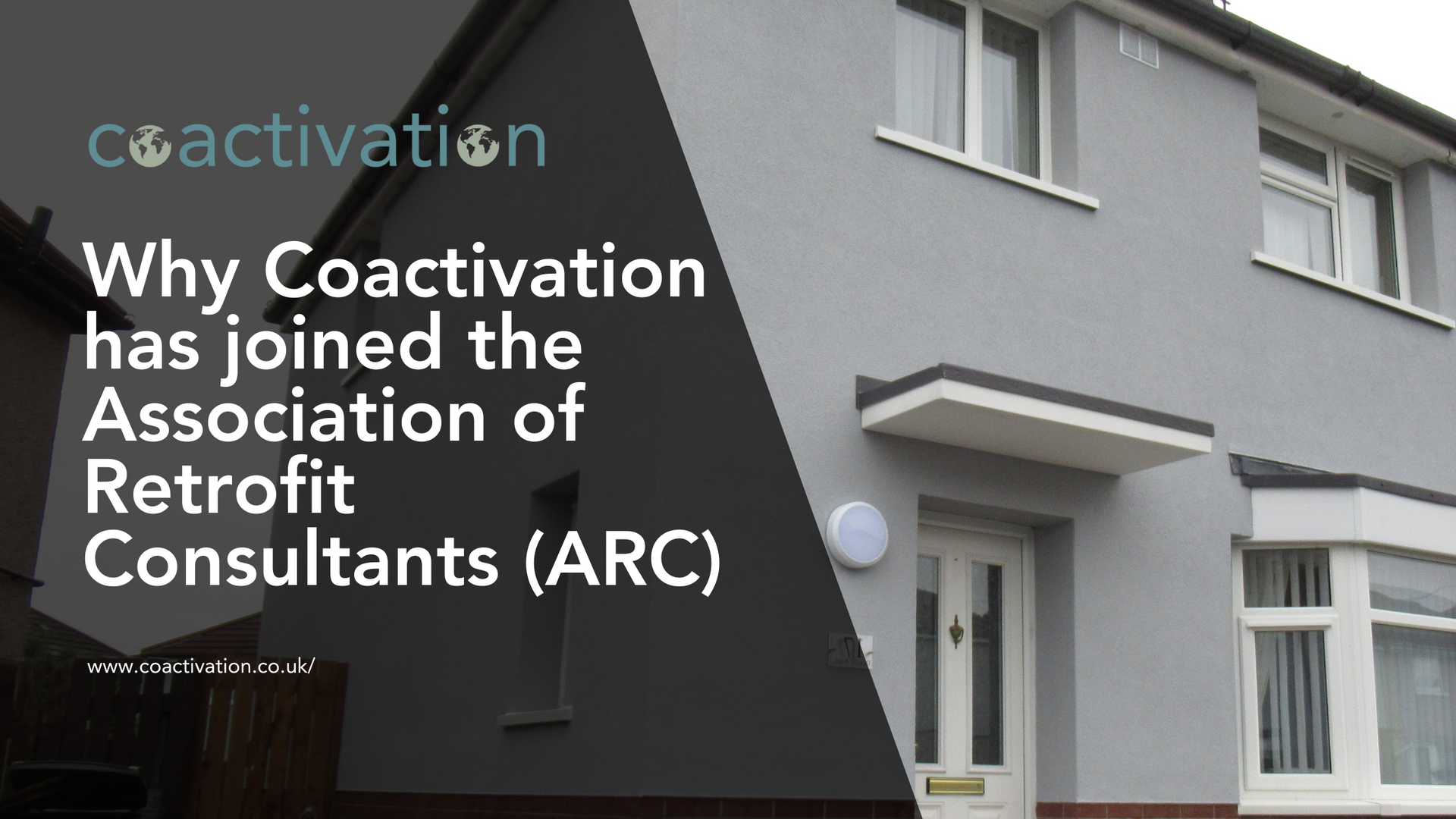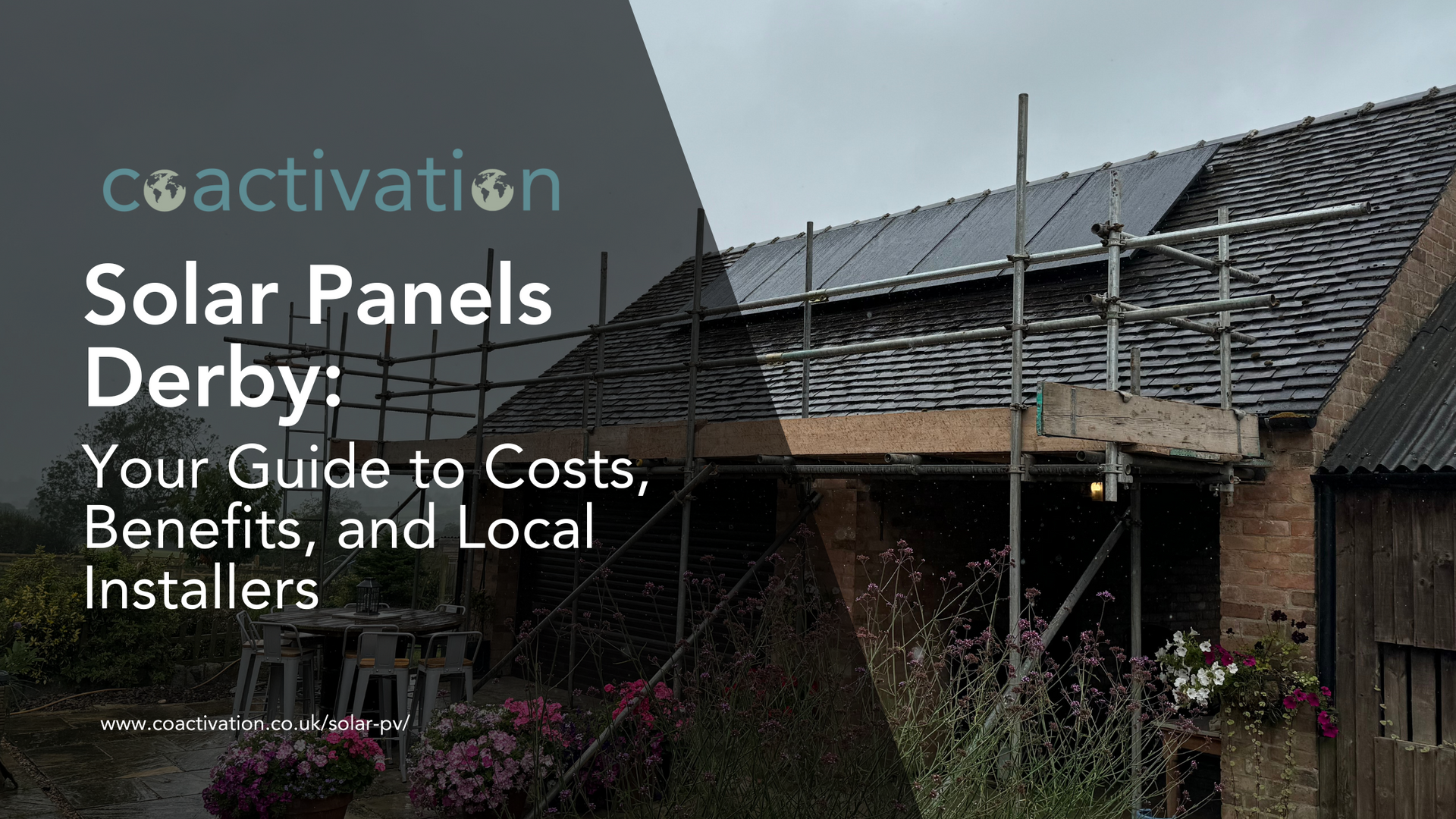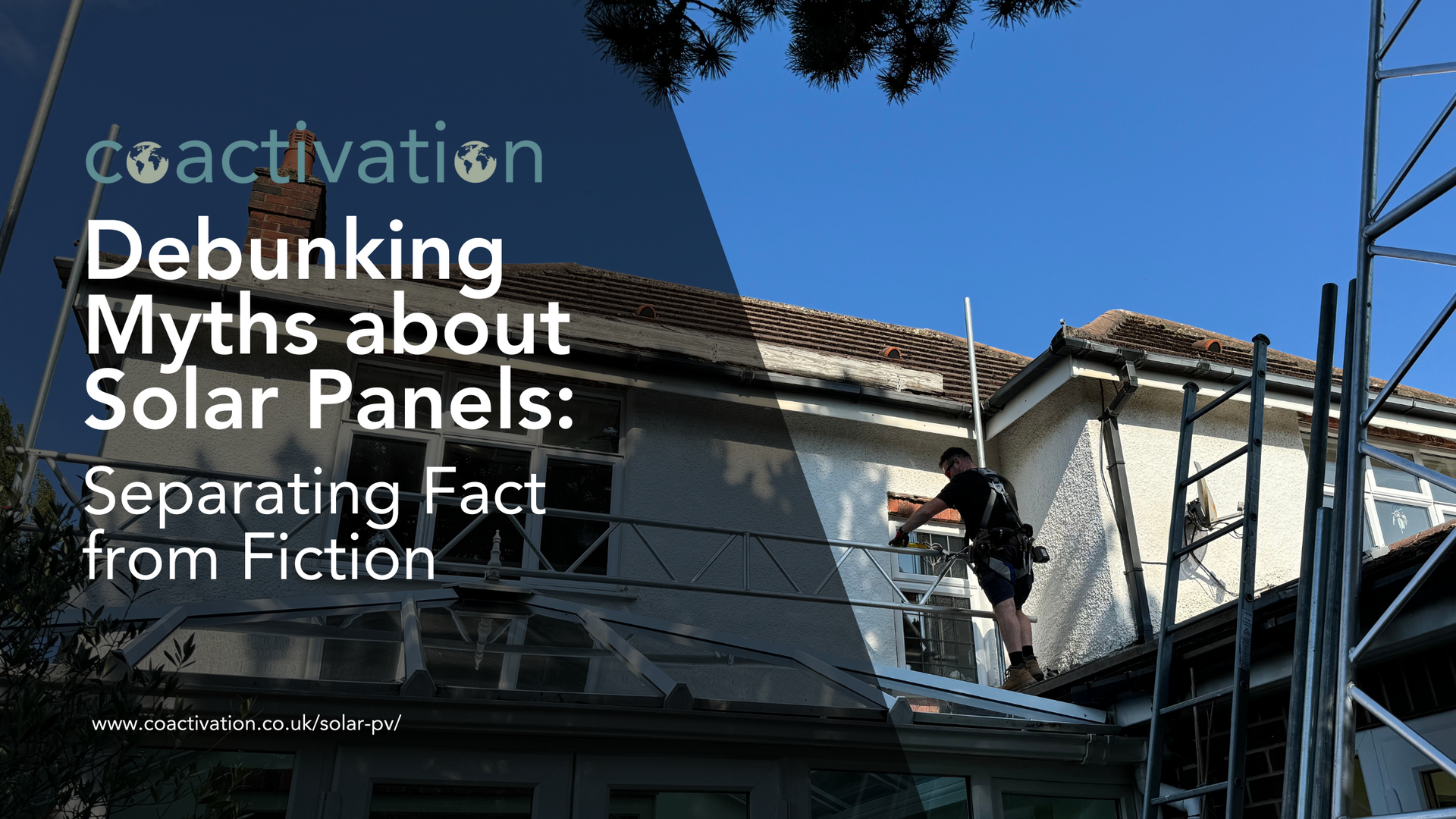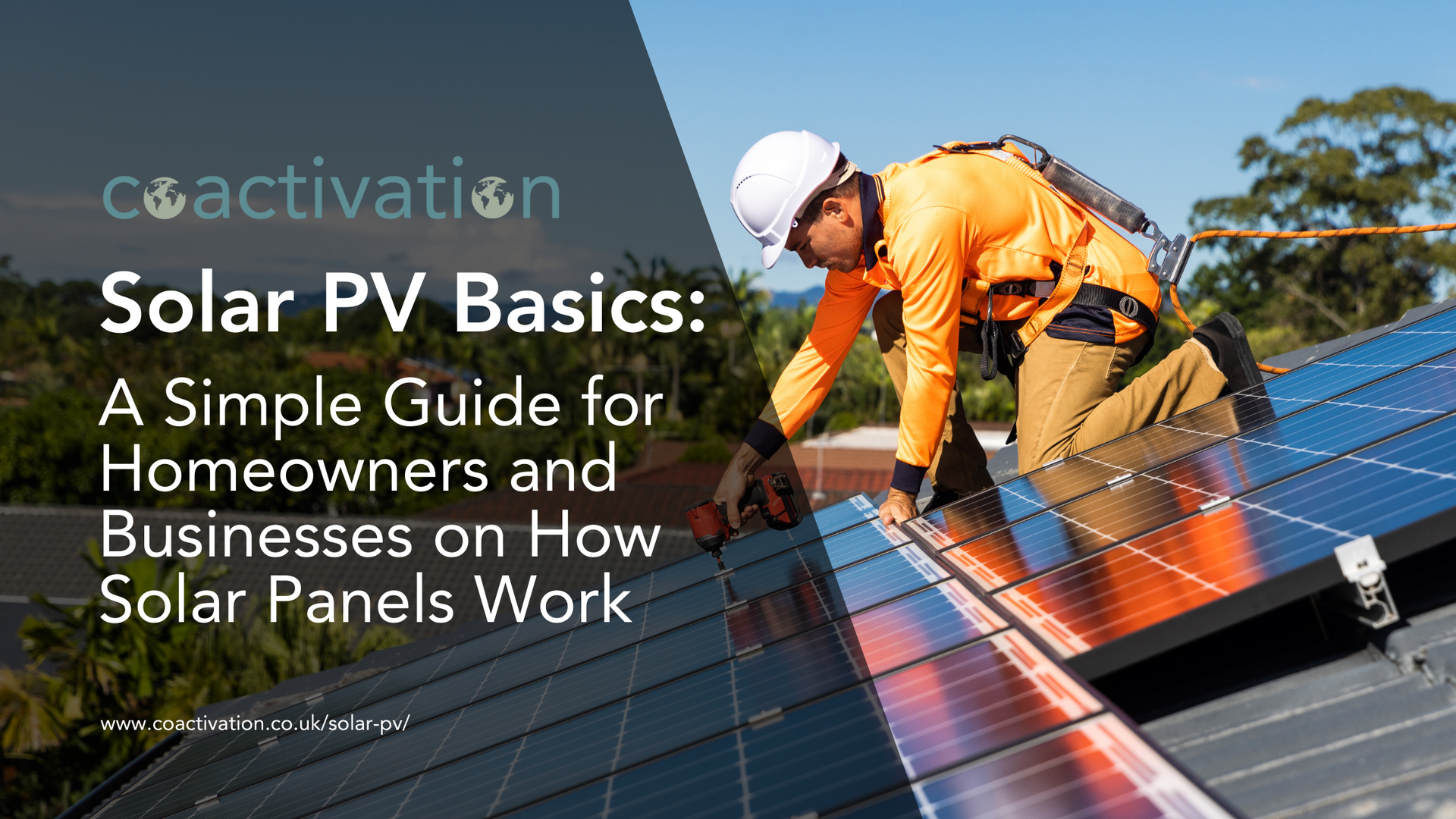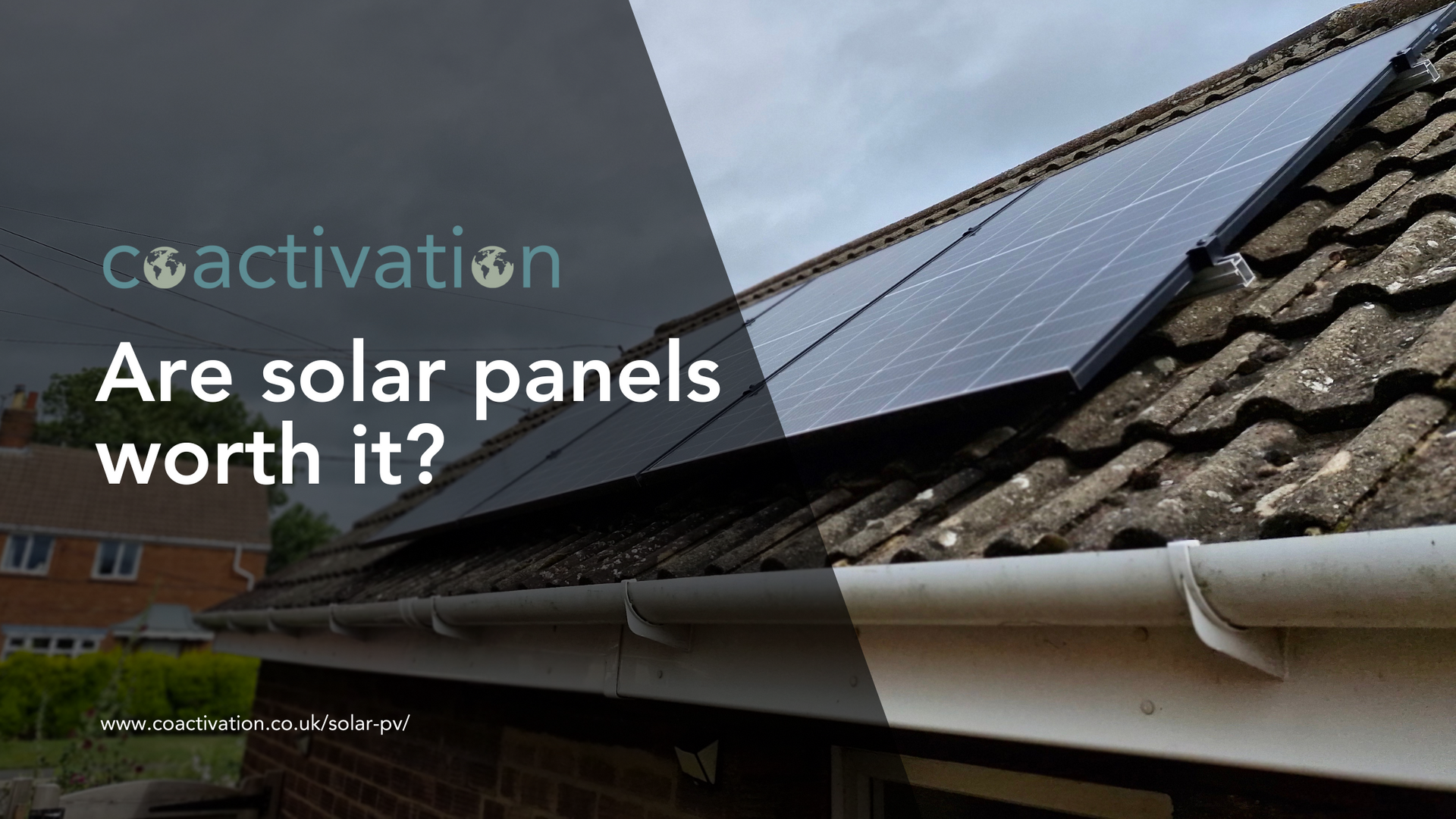
Are solar panels worth it in the UK?
It’s a question more homeowners are asking, especially with energy prices on the rise and growing interest in sustainable living. But for many, there’s still that hesitation; will solar panels really deliver value in the UK’s not-so-sunny climate? What’s the real payoff for the upfront investment?
Here, we’ll take a look at whether solar panels make financial and practical sense for UK homeowners. From cutting down energy bills and increasing home value to gaining energy independence and reducing carbon footprints, we’ll cover the full spectrum of benefits (and tackle some common myths along the way).
If you’re wondering about the potential return on investment, have questions about solar in cloudy weather, or are simply curious about what solar could mean for your home, this guide is just for you. You’ll get a really clear picture of whether solar panels could be the right choice for you and your home. So, let’s get into it – and find out if solar really stacks up for UK homeowners.
What Does ‘Worth It’ Really Mean When It Comes to Solar Panels?
When you ask if solar panels are "worth it," the answer isn’t as simple as one-size-fits-all. For some, it’s all about financial savings – cutting down on rising energy bills and recouping the investment over time. For others, the value lies in reducing their carbon footprint, contributing to a greener UK, or gaining some independence from the energy grid. And then there’s the added bonus of increasing your property value; homes with energy-efficient features, like solar PV systems, are becoming more attractive on the housing market.
So, what does "worth" mean for you? Think about your main priorities. If long-term savings are your goal, consider how much you spend on energy now and what cutting those costs could look like over the next 10 or 20 years. If sustainability’s your big draw, look at the environmental impact: installing solar panels can reduce your carbon footprint and help the UK meet its renewable energy goals. And if you’re thinking about the future resale value of your home, solar panels can add a valuable, energy-efficient asset that appeals to eco-conscious buyers.

Financial Perspective: Are Solar Panels in the UK a Good Investment?
When it comes to investing in solar panels, understanding your return on investment (ROI) is key. In the UK, most homeowners see their solar panels "pay for themselves" within 7 to 10 years, thanks to the energy savings they generate. This means that after the initial cost of installation, the savings on your energy bills begin to outweigh what you spent. With solar panels typically lasting 25 years or more, that’s plenty of time to benefit from free electricity!
The real savings add up over time. Over 10 years, you could see thousands saved on energy bills, with the potential for even more over 20 or 25 years as energy prices rise. By generating your own power, you’re avoiding the impact of fluctuating grid prices and securing long-term savings. Solar panels aren’t just protection against rising energy costs; they’re a way to keep those costs as low as possible, year after year.
There’s also the Smart Export Guarantee (SEG) to consider, which makes solar power even more financially appealing. With the SEG, you can earn money by selling any excess electricity your panels generate back to the grid. Depending on your system size and energy use, SEG earnings can add up over the year.
In short, solar panels can offer an attractive financial return, both through savings and earnings. If you’re looking to cut energy costs and potentially generate income, solar panels can be a strong long-term investment for your home.

Environmental Perspective: How Solar Panels Contribute to a Greener UK
If you’re considering solar panels, their environmental impact might be a big part of why. Solar panels help reduce your carbon footprint by generating clean, renewable energy right at home. The Energy Saving Trust estimates that a typical UK home with a solar PV system can reduce carbon emissions by 1.3 to 1.6 tonnes each year, depending on location. To put that into perspective, 1.3 tonnes of CO₂ is about the same as burning 536 gallons of petrol or charging over 600,000 smartphones. Over 30 years, a solar PV system in the UK could prevent around 39 tonnes of CO₂ emissions – the equivalent of planting 2,365 trees and letting them grow for ten years (Techround, 2024).
Solar panels don’t just benefit your household; they play a role in a much larger picture. The UK has ambitious renewable energy goals, aiming to achieve net-zero emissions by 2050. By choosing solar, you’re directly contributing to that national target, helping to shift the energy landscape away from fossil fuels and toward sustainable sources. Every kilowatt of solar energy generated at home reduces demand for non-renewable energy, supporting a greener, more resilient power grid.
Your choice to go solar is also a step toward greater energy security. With more homes generating their own renewable energy, the UK becomes less dependent on imported fossil fuels, creating a more stable, secure energy future. It’s thought leadership in action—your decision doesn’t just impact your home; it’s a contribution to environmental stability, community resilience, and a cleaner future.
Going solar means investing in a more sustainable world, and that’s something worth celebrating. By making this choice, you’re not only reducing your own carbon footprint but also supporting a larger movement towards a greener, more sustainable UK.

Energy Security and Stability: Reducing Dependence on the Grid
With energy prices on the rise and growing concerns about reliance on natural gas and fossil fuels as sources of energy, achieving energy independence is becoming more important for UK homeowners.
By installing solar panels, you’re taking control of your energy by generating your own electricity. This reduces your dependence on the grid, giving you a level of self-sufficiency that can help protect against future price hikes and power supply issues.
One of the biggest advantages of solar panels is that they provide a stable, predictable source of energy, even as external energy costs fluctuate. Knowing that part, or indeed all, of your electricity is generated right from your roof adds a layer of security to your home, especially in times when energy prices are unpredictable or climbing.
Adding a solar battery can take this energy independence a step further. With a battery, you can store the excess energy your solar panels produce during the day and use it when the grid is down or during peak times when energy costs are higher. This not only allows you to get the most value from your solar setup but also ensures a more resilient power supply for your home.
In essence, a solar battery gives you a reliable backup power source during outages, making solar energy even more valuable. This added ‘energy resilience’ means your household can continue to function even when the grid isn’t, giving you greater peace of mind and more control over your energy future.

Futureproofing Your Home: The Long-Term Value of Solar Panels
Investing in solar panels isn’t just about immediate energy savings; it’s a powerful way to future-proof your home. Solar panels add value to your property, making it more appealing to eco-conscious buyers and those looking to reduce energy costs.
With sustainability becoming a key priority for many, homes equipped with energy-efficient features, like solar PV systems, often attract higher offers on the market. Research suggests that homes with solar panels are more sought after, with some studies indicating that properties with solar installations can sell up to 20% faster and for a premium (Forbes, 2024).
By installing solar panels now, you’re also positioning your home to adapt to the future of energy. As the UK and global markets shift toward greener, self-sustaining energy solutions, solar-powered homes are better equipped for new developments, like smart grids or more advanced energy storage solutions. With the push toward net-zero emissions and potential new regulations on home energy efficiency, solar panels can help you stay ahead of any requirements, ensuring your home is prepared for changes in the energy landscape.
Futureproofing your home isn’t just about staying current; it’s about protecting your investment and making a smart decision for the years to come. With energy independence and sustainability only growing in importance, installing solar panels now is a proactive step that keeps your home valuable, adaptable, and resilient in an ever-evolving world.

Is Your Home a Good Fit for Solar Panels? Here’s How to Tell
If futureproofing your home with solar panels sounds appealing, the next step is to figure out if your property is a good fit for a solar panel installation and use. Let’s look at some quick ways to assess your roof and potential savings, so you can see if solar panels could work for you.
Evaluating Your Roof’s Suitability
Your roof’s orientation, angle, and shade coverage all play a role in its solar potential. Ideally, a south-facing roof will capture the most sunlight throughout the day, but east- or west-facing roofs can still work well. The angle matters too—between 30-40 degrees is typically ideal, though most roofs can still produce good results with some variations.
Finally, think about shade. Are there trees, chimneys, or neighbouring buildings that block sunlight on your roof? The more direct sunlight your panels get, the better their performance.
If you’re not sure how your roof stacks up, a consultation with a professional solar installer will give you a complete assessment. They’ll check your property’s solar suitability, providing personalised recommendations that fit your unique setup.
Calculating Potential Savings Based on Your Home’s Energy Needs
Once you know your roof is suitable, it’s time to look at your potential savings. Start by checking your annual energy usage on recent energy bills. For example, if you use about 2,700 kWh per year, a solar system with between 8-13 x 350kw or 450kw panels would help offset a significant portion of your energy usage (Greematch, 2024). Any experience, reliable installers can give you a personalised savings estimate, factoring in your location, roof size, and typical sunlight exposure.
If you’re after a rough calculation, a general rule is that each kWh produced by solar can reduce your energy bill by 20-30%, depending on your usage. This snapshot helps you see how solar could lead to serious savings over time—just another reason why solar panels are worth considering for a sustainable, future-proof home.

Key Takeaways: What Makes Solar Panels Worth It for UK Homeowners?
So, are solar panels worth it? For many UK homeowners, the answer is a resounding ‘YES’! Solar panels bring a range of benefits: financial savings on your energy bills, a reduced carbon footprint, energy independence, and the future-proofing value of a sustainable home. While every home and budget is unique, these advantages mean that solar is often a solid investment with long-term payoffs.
Whether you’re driven by cutting energy costs, supporting the environment, or preparing your home for the future, solar panels offer real value. Plus, with rising energy prices and increasing incentives for renewable energy, now is a great time to explore the possibilities for your own home.
Thinking of making the switch? Book a chat with our awesome installation team, so we can share tailored insights into your property’s solar potential, estimated savings, and return on investment. It’s your simple next step in deciding if solar is a worthwhile investment for you.
References
Forbes, 2024. Do Solar Panels Increase Your Home’s Value?. [Online]
Available at: https://www.forbes.com/home-improvement/solar/does-solar-increase-home-value/
Greematch, 2024. How Many Solar Panels Do I Need in the UK?. [Online]
Available at: https://www.greenmatch.co.uk/blog/how-many-solar-panels-do-i-need
Techround, 2024. How Residential Solar Can Reduce Your Carbon Footprint. [Online]
Available at: https://techround.co.uk/guides/residential-solar-reduce-carbon-footprint/



